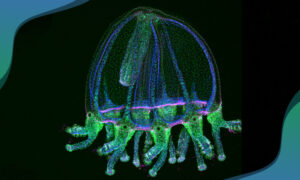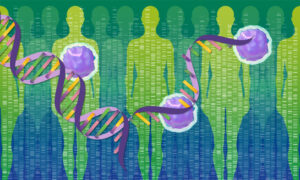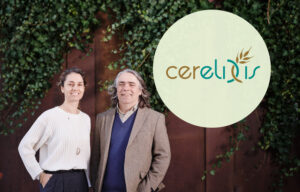
An organisation and its environment
EMBO/EMBL conference highlights the continued importance of EMBL’s broadened scope that looks at ‘life in context’
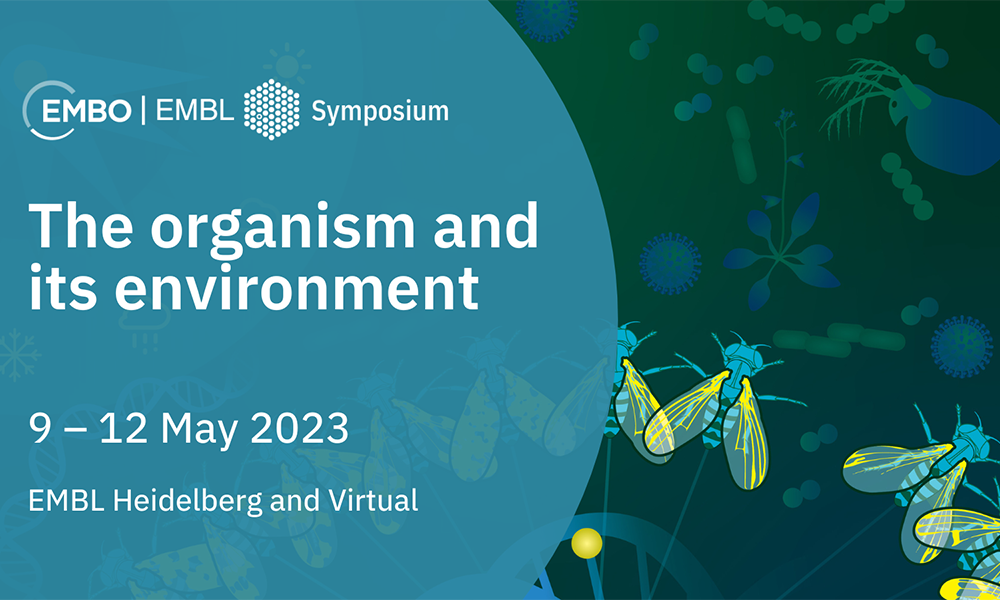
In 2020, a worldwide pandemic was transforming the planet in many ways, including putting a pause on in-person training. EMBL’s final in-person and remarkably prescient conference ‘The organism and its environment’ offered not only a window into the scientific collaboration and perspective needed to understand and prevent pandemics but a peek into the organisation’s next five-year programme that began in 2022, looking at ‘life in context’.
“When I arrived in 2019, I was prompted to think about a new era of life sciences,” said Edith Heard, EMBL’s Director General. “So with my colleagues here, we brainstormed and came up with the idea that we need to look at life in its natural context. And to accompany that, we thought a symposium could be a good forum to bring together people from areas that don’t normally get together like this.”
This May, EMBL was able to resume this conference in person, and the conversation again drew scientists from a variety of disciplines. Whether it be the changing demographics of Icelandic char or bacteria adapting to evolving environments, the meeting covered many topics related to understanding the organism and its environment. EMBL’s commitment to this broadened scope of its molecular biology research reestablished an important nexus for sharing scientific pursuits and drawing scientists from different disciplines to explore ways to mesh their knowledge and work together.
“The conference serves as a great place to share ideas and contemplate where work from different scales of life (from molecules to organisms in ecosystems) intertwines,” Heard said. “Even in the short time that the Molecules to Ecosystems programme has been in place at EMBL, it has helped convey the critical role that molecular biology can and will play in understanding important global issues. This conference is a living example of this.”
The conference, made available through support from EMBL’s Corporate Partnership Programme, focused on six areas for talks and discussions: biodiversity, marine symbiosis, terrestrial symbiosis, theory, environmental adaptation in model organisms, and paleogenomics.
“The meeting serves as a great way to test the new directions where planetary biology is taking us,” said Detlev Arendt, an EMBL senior scientist, co-chair of the Planetary Biology transversal theme, and one of the conference organisers. “From our side at EMBL, we are entering this meeting with the idea of exploring how molecular and cellular biology can be pointed in an ecological direction. Through talks and discussions with others attending this meeting, we can gain from their perspective and experience, as they gain from ours. For me, what I looked forward to most was discussions about where this leads us – the next stage.”
The conference provided a forum to discuss how organisms acclimate and adapt in response to environmental changes. Researchers showcased compelling studies highlighting the remarkable strategies employed by various species to survive and thrive in challenging conditions. From evolutionary mechanisms to phenotypic plasticity, speakers shed light on the diverse ways organisms navigate their surroundings and the underlying genetic, epigenetic, and ecological factors at play.
Here are just a few highlights from the talks:
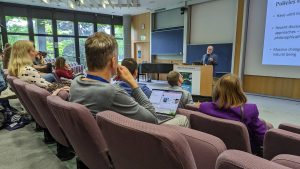
Skúli Skúlason, Hólar University College in Iceland. Skúlason gave a very philosophical opening to the symposium and shared his research findings related to char fish habitats and how their environment impacts development and longer-term evolution. Skúlason played an important role in EMBL’s final pilot voyage for its Traversing European Coastlines (TREC) project that combines the expertise and infrastructure of EMBL and multiple European partners to initiate a new era of coastal ecosystems exploration.
Silvia Bulgheresi, University of Vienna. Bulgheresi’s research explores the complex interactions between bacteria and their animal hosts, particularly exploring the mechanisms and adaptations that allow these bacteria to colonise and persist on animal skin as well as the communication between bacteria and host. By studying the symbiotic relationships between bacteria and animals, often with cutting-edge microscopy techniques and molecular biology approaches, she shared information about underlying molecular and cellular mechanisms.
Leho Tedersoo, University of Tartu, Estonia. Tedersoo’s research focuses on understanding the intricate relationships between plants and fungi and how these interactions influence ecosystem functioning and biodiversity. With particular attention paid to the symbiotic relationship between plant roots and certain types of fungi, he spoke of the crucial role of this symbiosis in nutrient uptake, plant growth, and overall ecosystem health and his research to unravel their diversity, distribution, and ecological functions in different ecosystems around the world.
Richard Durbin, University of Cambridge, United Kingdom. Durbin provided a keynote address titled ‘Exploring ancient ecosystems using environmental DNA’, where he underlined the continuing importance of genomics in exploring ancient life in context. He discussed the genomic approaches he has taken as a computational biologist to reconstruct past environments, track the evolution of species, and investigate the dynamics of ancient ecological communities.
The conference, which was set up to draw attention to the value of collaborative research, was driven home by discussions about the clear need for this interdisciplinary way of doing science to address the complex challenges posed by organism-environment interactions. Scientists from various fields, including ecology, genetics, evolutionary biology, and environmental science, shared their expertise and forged new collaborations to address pressing issues such as biodiversity loss, climate change impacts, and conservation strategies.
“I came here both to share information and gain information,” said Bechara Saade, from the pharmacy school at Charles University in Prague. He presented a poster and flash talk related to mathematical modelling.
“It was refreshing to present our work to scientists that ranged from plant biologists and cell biologists to philosophers,” said Flora Vincent, an EMBL group leader who also spoke on how to transition from lab- to ocean-scale experiments to better understand the contributing factors to algal blooms. “And this is just the beginning as we all work toward building a dialogue between lab-based and field-based science across species and ecosystems.”

